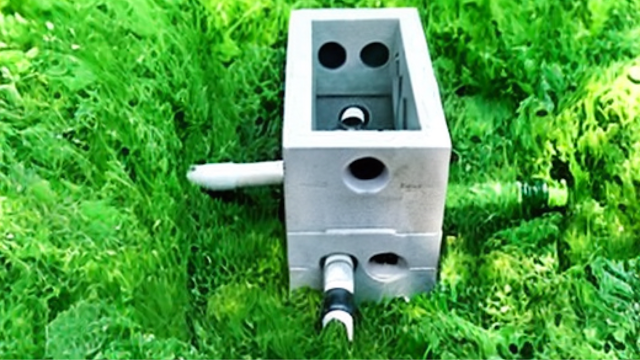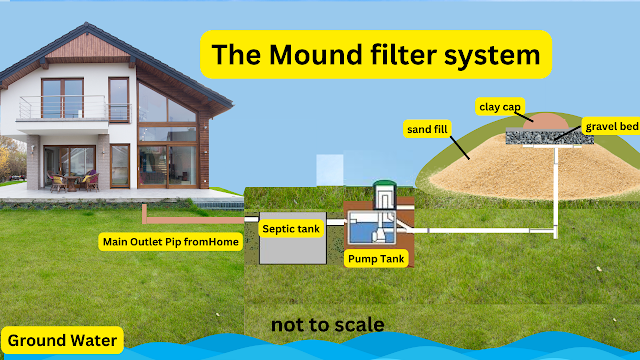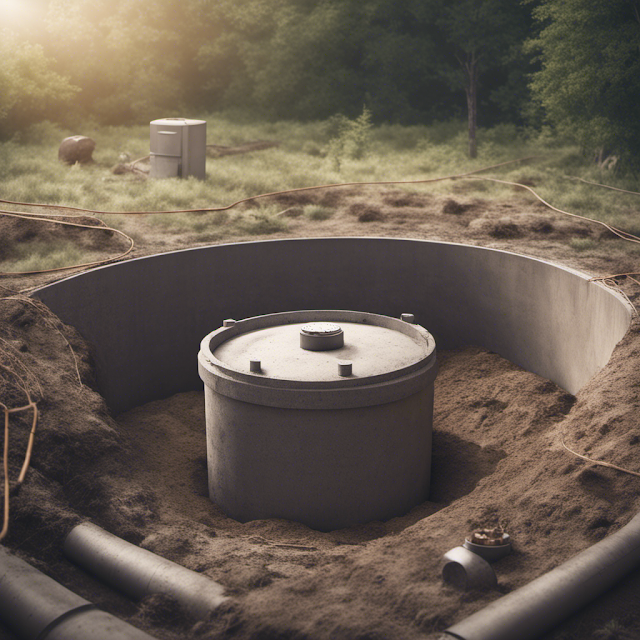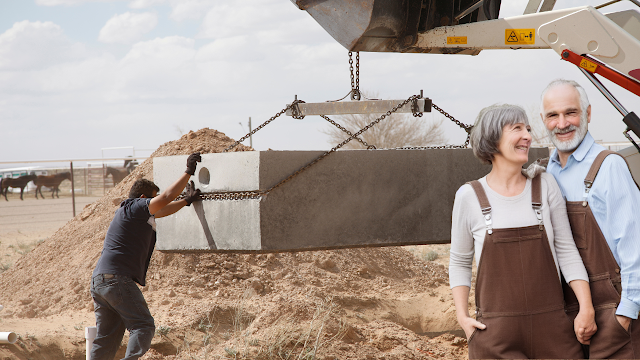The Comprehensive Guide To Local Septic Regulations | Stay Compliant & Informed
 |
| Local Septic Regulations |
Introduction To Local Septic Regulations
Are you a homeowner with a septic
system on your property? Do you want to stay compliant and informed about local
regulations? Look no further than this comprehensive guide to local septic
regulations.
Understanding the ins and outs of your
septic system can be overwhelming, but it's crucial for maintaining a healthy
environment and avoiding costly fines.
In this guide, we'll cover everything
from permit requirements to environmental considerations when designing andinstalling your septic system. You'll learn about site evaluations, working
with professionals, and staying up-to-date with local codes.
With this knowledge, you'll have the
power to make informed decisions about your septic system and ensure that
you're in compliance with all applicable regulations.
So let's dive in!
Key Takeaways
•
Understanding local septic
regulations is crucial for maintaining a healthy environment and avoiding
fines.
•
Compliance with all applicable
laws throughout the installation and maintenance process is essential.
•
Environmental considerations,
such as soil type and water table level, must be taken into account for a
healthy ecosystem.
•
Working with professionals who
understand local septic regulations can help ensure compliance and protect
property investment.
Understanding Your Septic System
If you're a homeowner, it's essential
that you understand your septic system to ensure it runs smoothly and avoid any
costly repairs. Understanding septic regulations is crucial to maintaining
compliance with local septic regulations.
Each state has its own set of rules and
regulations for home septic systems, including state-specific septic
regulations and local septic system requirements. Adhering to local septic
regulations means being aware of the necessary steps for proper septic tank
maintenance rules, such as regular pumping schedules and avoiding flushing
non-biodegradable items down the drain.
Failing to comply with these regulations
can result in hefty fines. Property owners should also be aware of the
consequences of neglecting their system, which can lead to environmental damage
or health hazards.
Understanding your local septic system
rules can help prevent future problems and keep your system functioning
correctly. Homeowners should familiarize themselves with their specific permit
requirements for their particular property type, including setbacks from water
sources or other structures.
Keeping up with routine inspections will
ensure that everything is working correctly and prevent potential issues from
becoming more significant problems. In conclusion, understanding your local
septic regulation is critical in maintaining compliance with state-specific and
local laws regarding home waste management systems.
By staying informed about the latest
developments in this field, homeowners can avoid costly mistakes and keep their
properties safe for themselves as well as others around them. In the next
section about permit requirements for septic systems, we'll take a closer look
at what exactly those are!
Permit Requirements for Septic Systems
You'll need a permit for your septic
system, so make sure to check with your local government before installation.
Here are four things you should know about permit requirements for septic
systems:
1.
Check local regulations for
septic system maintenance: Your local government will have specific rules in
place regarding the maintenance of your septic system. It's important to
understand these regulations and follow them closely to avoid penalties.
2.
You'll likely need a permit
from your local health department before installing a septic system on your
property. This permit will require an inspection of the site to ensure it meets
certain standards.
3.
Noncompliance with local
regulations can result in penalties such as fines or even legal action. It's
crucial to stay informed and comply with all laws and regulations surrounding
your septic system.
4.
Each state has its own set of
rules and regulations surrounding septic systems, including laws governing
their installation, inspection, cleaning, and more. Be sure to research the
specific guidelines relevant to where you live.
Understanding the ins-and-outs of
septic tank cleaning regulations, septic system installation guide, and other
important factors is key when it comes to staying compliant with all applicable
rules and avoiding penalties for noncompliance.
In the next section, we'll explore how
site evaluation plays a key role in ensuring proper installation of your new
septic system.
Site Evaluation
Before installing a septic system,
it's important to have a thorough understanding of the site evaluation process
and how it can impact the long-term success of your system. The site evaluation
is like the foundation of your septic system - without a strong base,
everything else will crumble.
This step ensures that you install your
septic system in an appropriate location that meets all local regulations for
septic system installation and maintenance. To start, you need to become
familiar with the local regulations for septic tank installation guide and
septic tank regulations by state. Each state has its own set of rules and
guidelines, so make sure you know what is required in your area.
Contacting your local health department
is often the best way to ensure compliance with local septic regulations. Once
you understand the rules in your area, it's time to get started on the actual
site evaluation process. This typically involves soil testing, which determines
if the ground can adequately support a drain field or if there are any issues
that need to be addressed before installation can occur.
There may also be additional inspections
required throughout the process such as septic tank inspection rules. Overall,
understanding septic system rules in my state is critical when starting this
process. A thorough site evaluation will save you time and money down the road
by ensuring that you're installing your system correctly from day one.
With proper compliance with local
regulations for septic tank permits and maintenance requirements, you'll be
able to rest easy knowing that your new sewer system will function properly for
years to come. As you move forward designing your septic system, keep in mind
what was learned during this crucial first step – without a solid foundation
(site evaluation), even great design won't hold up over time!
Designing Your Septic System
Get ready to create a functional
septic system that fits your property like a glove by designing it with these
helpful tips! Before you begin, make sure you're familiar with the local
regulations for septic system maintenance and installation in your area.
Understanding septic system rules in your state is crucial to ensuring
compliance with local septic regulations.
When designing your septic system, take
into consideration the size of your property, the number of bedrooms in your
home, and the soil type on which it will be installed. It's important to follow
specific guidelines when installing a new septic tank. You can find a
comprehensive guide to local septic rules and guidelines provided by your local
health department or environmental agency. This guide will help you understand
what permits are required for a new installation and how to obtain them.
It's also important to consider the
cleaning regulations for your area when designing your system. Regular
maintenance is required to keep a healthy balance of bacteria within the tank
and ensure proper functioning over time. Additionally, be aware of any inspection
rules that may apply after installation. In some areas, regular inspections are
mandatory, while others have less stringent requirements.
By following these design tips and
complying with all necessary permits and regulations, you can avoid penalties
associated with non-compliance. Stay informed about developments in local
regulations for septic systems so that you can be confident that you're always
up-to-date on relevant changes.
As you move forward into the installation
and inspection phase of creating an effective septic system, it's important to
remember these key details about design: consider location based on soil type;
follow specific guidelines set forth by regulatory agencies; account for
cleaning requirements; pay attention to inspection rules and avoid penalties
through compliance with applicable laws. Remembering these essential components
will help ensure success as you move forward through each step of installing an
ideal solution-based sewage treatment plant tailored specifically towards
meeting unique needs within residential neighborhoods or commercial properties
alike!
Installation and Inspection
Once the design for your septic system
is finalized, it's time to roll up your sleeves and start with the installation
and inspection process, ensuring that all the pieces of the puzzle come
together smoothly like a well-oiled machine. Here are some key things to keep
in mind as you move forward:
•
Obtain all necessary permits
from your local health department before beginning installation.
•
Follow your septic system
installation guide closely to ensure everything is installed properly.
•
Schedule an inspection with
your local health department or professional inspector once everything has been
installed.
•
Be aware of septic tank
cleaning regulations in your area and make sure to schedule regular cleanings
accordingly.
It's important to stay up-to-date on
local regulations for septic system maintenance and inspections, as
noncompliance can result in penalties. Each state has its own set of rules regarding
septic tank regulations, so be sure to do your research ahead of time.
In addition to state-level regulations,
there may also be specific local regulations that you need to adhere to. In
order to avoid any issues down the line, it's essential that you comply with
all local septic regulations throughout the installation process. This includes
obtaining any necessary permits beforehand, following guidelines closely during
installation, scheduling inspections as required by law, and keeping up with regular
maintenance tasks such as cleaning.
As you prepare for ongoing maintenance
tasks such as pumping and cleaning, it's important to keep in mind how these
efforts impact compliance with local septic tank laws and penalties. Stay
informed about what's required of you when it comes maintaining your system
over time; this will help you avoid costly mistakes down the line while keeping
your system running smoothly for years to come.
Next up: maintaining your newly-installed
septic system through regular pumping and upkeep.
Maintenance and Pumping
Maintaining your septic system is
crucial to avoid costly repairs and ensure the safety of your family's health,
so make sure to schedule regular pumping appointments with a professional. In
fact, local regulations for septic system maintenance often require homeowners
to have their tanks pumped every three to five years depending on the size of
the tank and household usage.
By complying with these septic tank
cleaning regulations, you can prevent expensive damage caused by overflowing or
clogged systems. It's important to note that compliance with local septic
regulations doesn't just mean scheduling routine pumping appointments.
Understanding septic system rules in your state is key to avoiding penalties
for septic noncompliance.
This means consulting a comprehensive
septic system installation guide for information about what type of tank and
drain field are required for your property, as well as ensuring that any
alterations made comply with local regulations. Additionally, staying
up-to-date on current septic tank laws and penalties can help protect you from
fines or legal action should an issue arise.
Regular inspections are also essential to
maintaining a healthy and functional system. Septic tank inspection rules vary
by region, but typically involve inspecting the levels of solids in the tank
and checking for leaks or other potential issues. These inspections can alert
you to problems before they become major headaches, saving you both time and
money in the long run.
In order to stay compliant with local
regulations for septic system maintenance, it's important to be proactive about
caring for your system. Regular pumping appointments, understanding local
guidelines and laws related to installation and inspection, and conducting
routine inspections will all help keep your septic system functioning properly.
However, even with proper maintenance there may be times when troubleshooting
common issues becomes necessary - which we'll cover next.
Troubleshooting Common Issues
If you're experiencing difficulties
with your septic system, there are some common issues you may encounter that
can be easily addressed. Did you know that one of the most common problems is a
clogged drain field caused by excess solids in the tank?
Here are five things to look out for when
troubleshooting your septic system:
•
Foul odors coming from your
drains or yard
•
Slow draining sinks and toilets
•
Gurgling sounds coming from
pipes
•
Wet spots or standing water in
your yard
•
Sewage backups into your home
To avoid penalties for septic
noncompliance, it's important to stay up-to-date on local regulations for
septic system maintenance. Regular septic tank cleaning is crucial to prevent
buildup of solids and keep your system functioning properly. Additionally,
following local rules and guidelines for septic tank inspection can help catch
potential issues before they become major problems.
If you're still having trouble with your
septic system after troubleshooting common issues and ensuring compliance with
local regulations, it may be time to consider upgrading your system. A
professional can provide guidance on whether a new installation or repair is
necessary based on the specific laws and penalties in your area. Remember,
staying informed about septic tank laws and penalties can save you time, money,
and headaches down the line.
Upgrading Your Septic System
Upgrading your septic system can be a
smart investment to ensure efficient and trouble-free wastewater disposal.
Before you begin, familiarize yourself with the local rules and regulations for
septic system maintenance and installation.
In addition to following the septic tank
installation guide, you must also comply with any specific requirements set by
your state or county. For example, some states require a certain distance
between the leach field and nearby bodies of water or wells. Others mandate
regular inspections of both new and existing systems. Failure to follow these
regulations could result in hefty penalties for septic noncompliance.
It's important to note that upgrading
your septic system may not always be necessary or cost-effective. However, if
you're experiencing recurring issues such as clogs or backups, it may be worth
considering an upgrade. A professional assessment can help determine if this is
the right choice for your situation.
In summary, upgrading your septic system
can provide peace of mind knowing that you're complying with local regulations
and codes while ensuring efficient wastewater disposal. Before making any
decisions regarding upgrades, consult a professional and research the septic
tank laws specific to your area.
Next up: understanding local regulations
and codes for proper maintenance of your upgraded system.
Local Regulations and Codes
Did you know that understanding the
local regulations and codes for septic systems is crucial to ensure your system
operates efficiently and effectively?
The rules and guidelines vary by state,
county, or even municipality. Thus, it's vital to be familiar with the specific
local septic rules and guidelines in your area. These regulations cover
everything from septic tank cleaning regulations to septic system installation
guides.
To avoid penalties for septic
noncompliance, it's essential to comply with local septic regulations. Failing
to adhere to these standards can result in financial fines or legal actions
against you. It's no secret that maintaining a healthy environment should be
everyone's responsibility, including adhering to septic tank laws and
penalties.
Local regulations for septic system
maintenance also require homeowners to have their systems inspected regularly
by licensed professionals. Septic tank inspection rules specify how often
inspections are required, depending on the size of your property and the number
of people who use its facilities. Ignoring these inspections could lead to
severe damage or failure of your system.
Compliance with local septic regulations
can seem like an overwhelming task, but it's necessary if you want your system
functioning correctly while avoiding legal problems.
Next up: Environmental considerations
when maintaining a healthy ecosystem around your home!
Environmental Considerations
When it comes to maintaining a healthy
ecosystem around your home, you need to be mindful of the impact your septic
system has on the environment. Environmental considerations are crucial when it
comes to septic tank installation, maintenance, and inspection.
Here are three important factors that
should always be taken into account:
•
Soil type: Your soil type plays
a significant role in determining how well your septic system will function.
The ability of soil to absorb water is known as its percolation rate. Soil with
high clay content or rock formations can limit the percolation rate, making it
more difficult for wastewater to filter through naturally.
•
Water table level: The water
table is the depth at which groundwater saturates soil or rock in an area. Septic
systems rely on natural processes like bacterial breakdown and filtration
through the soil before effluent reaches groundwater resources. If the water
table is too high, there's a greater risk that untreated sewage could enter
local water sources.
•
Vegetation type: Trees and
other vegetation can have an impact on your septic system's performance by
affecting both soil moisture levels and nutrient absorption capacity.
To avoid penalties for septic
noncompliance, you must follow all local regulations for septic system
maintenance. These include regular inspections and cleaning schedules as well
as proper disposal of waste materials from your property.
Local rules and guidelines may vary
depending on where you live; therefore, it's essential to familiarize yourself
with them. Septic tank laws exist to ensure that homeowners take appropriate
measures to protect both human health and environmental quality. A failure in
compliance with these laws could result in significant fines or even legal
action being taken against you.
Working with professionals who understand
local septic regulations can help ensure that you stay compliant while also
protecting your investment in your property. By partnering with experts in this
field, you'll have access to up-to-date information about changes in
regulations or new technologies that can improve efficiency while minimizing
environmental impact.
Working with Professionals
Partnering with experts in the septic
industry is an absolute game-changer, as they can provide invaluable insights
and solutions that'll make your life so much easier. These professionals are
knowledgeable about septic tank cleaning regulations, installation guides, and
system rules. They're also well-versed in local guidelines.
Working with them is crucial because they
can help you understand local regulations for septic system maintenance and
avoid costly penalties.
Septic tank laws and penalties vary from
state to state, so it's important to work with a professional who knows the
specific rules in your area. They can help you navigate through all the
different requirements for septic tank inspection rules to ensure you're
meeting necessary regulations. Additionally, professionals can provide guidance
on proper installation protocols to ensure everything's done correctly.
When working with professionals, you'll
have access to their expertise on local rules and regulations regarding your
septic system. This knowledge will be invaluable when it comes time for routine
maintenance or repairs. With their help, you'll be able to stay compliant with
all relevant laws and avoid any negative consequences associated with
non-compliance.
Partnering with a professional in the
septic industry is one of the best decisions you can make as a homeowner or
business owner. Their experience and knowledge will help ensure your property's
wastewater management needs are met efficiently and effectively while complying
with all relevant local regulations. By working together, you'll be able to
enjoy peace of mind knowing your septic system is being properly maintained
according to the latest standards.
As you continue learning about local
regulations for managing your property's wastewater needs, there are many
resources available online where you can find further reading material on this
topic. These resources include government websites outlining various
environmental considerations related to wastewater management systems or
organizations dedicated entirely towards promoting sustainable living practices
within communities across America.
Resources and Further Reading
Get more information and expand your
knowledge on managing wastewater by exploring online resources and reading
materials available to homeowners and business owners. As a responsible septic
system owner, it's crucial to stay informed about the local regulations for
septic system maintenance.
Here are three essential resources that
you can use to learn more about septic tank regulations and guidelines:
•
The Environmental Protection
Agency (EPA) website provides comprehensive information on maintaining a
healthy septic system. You can find detailed guides on septic system
installation, operation, maintenance, and troubleshooting. The website also
contains state-specific rules for septic tank inspection, cleaning, and repair.
•
Your state's Department of
Health or Environmental Quality may have specific requirements that you need to
follow when it comes to your septic system. Check their website or contact them
directly to get more information about the local rules and regulations
governing your area.
•
Your local health department
can provide guidance on how often you should have your septic system inspected
or pumped out. They may also offer workshops or classes that cover topics such
as proper disposal of household chemicals and waste.
It's important to note that failing to
comply with local septic rules and guidelines could result in penalties for
noncompliance. These penalties may include fines, mandatory repairs or
upgrades, or even legal action in extreme cases.
In summary, educating yourself about
local regulations for septic systems is an essential part of being a
responsible homeowner or business owner. Make sure you familiarize yourself
with resources such as the EPA website, your state's environmental agency
website, and your local health department's guidelines regarding proper
maintenance of your septic system. By staying informed and complying with all
applicable laws regarding wastewater management, you can ensure the safety of
your community while protecting yourself from potential penalties for
noncompliance.
Frequently Asked Questions
Can I install a septic system on my own without hiring a
professional?
While it may be legal to install your
own septic system, it's not recommended. Septic systems are complex and require
expertise to ensure they're effective and safe. Hiring a professional is the
best choice for a successful installation.
How often do I need to have my septic system inspected?
On average, you should have your
septic system inspected every 1-3 years to ensure proper functioning and avoid
costly repairs. Neglecting inspections can lead to more frequent pumpings and
potentially hazardous situations for you and your family.
Are there any tax breaks or financial incentives for
upgrading my septic system to an eco-friendly option?
Upgrading to an eco-friendly septic
system may qualify you for tax credits or other financial incentives. Research
state and federal programs, and consult with a licensed installer to ensure
compliance with local regulations.
What happens if my septic system fails an inspection?
If your septic system fails an
inspection, you must repair or replace it immediately to avoid hefty fines and
potential health hazards. Contact a professional to assess the problem and
provide solutions.
How do I dispose of hazardous waste materials that may be
harmful to my septic system?
To dispose of hazardous waste
materials that may harm your septic system, you must first identify the type of
waste. Contact your local waste management facility to understand disposal
requirements and schedule a pickup or drop-off.
https://www.epa.gov/septic/how-your-septic-system-works
https://www.cdc.gov/healthywater/drinking/private/wells/septic.html
https://www.nidirect.gov.uk/articles/septic-tanks-and-treatment-plant
https://extension.psu.edu/septic-systems-overview
https://www.health.state.mn.us/communities/environment/water/fs/septic.html

.png)



.png)






Comments
Post a Comment